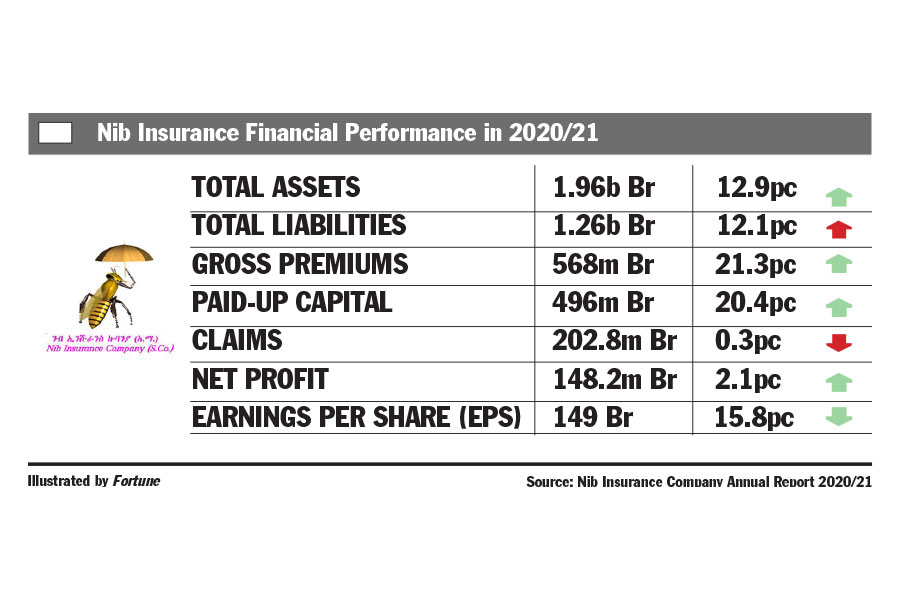
Aug 5 , 2023.
Predictability is the beating heart of any thriving economy, a quality that could be taken for granted in established markets. It is a scarce commodity in regions where legal volatility, political instability, and societal fragmentation reign.
Within such predictable confines, businesses – the dynamos of prosperity – find the courage to generate ideas, invest, and expand. When these environments are compromised, economies suffer.
A recent judicial maelstrom has thrown the financial sector into disarray, illustrating how an unpredictable environment impacts businesses. The Supreme Court's Cassation Bench, the final arbitrator of legal disputes, delivered a startling ruling that has sent shockwaves through the financial sector.
The Bench enabled federal tax authorities to deliver hefty tax demands to commercial entities that previously believed their accounts were in good order.
This chain reaction began with a legal tussle between Tsehay Industries, a former state-owned metal factory in the outskirts of Addis Abeba privatised to its current shareholders and federal tax authorities. The latter argued that shareholders using dividends to meet subscribed capital obligations should be taxed at 10pc, a claim that the Justices of the Supreme Court endorsed.
The dispute in interpretation was caused by an existing tax law, which exempts dividends reinvested into companies' growth and expansions from taxation.
A remarkable feature of this case was the Finance Minister's intervention. Despite serving the same administration as the Ministry of Revenues, the minister, Ahmed Shidie, had a dissenting opinion. He produced a letter supporting Tsehay Industries, a document that ended up being a bone of contention rather than a lifebuoy.
While it may have raised hopes initially, the Justices dismissed the letter's arguments, highlighting that it could not supersede the tax law.
While perplexing to the casual observer, these contrasting positions underscore the profound implications of policy inconsistency for Ethiopia's business environment. It is but one example in a string of similar cases where federal agencies issued conflicting directives, creating a fog of confusion for businesses and investors.
Consider another incident where the Minister of Justice blocked taxi associations' plans to import duty-free cars, a move initially endorsed by the Ministry of Finance. Thousands of taxi owners, having saved millions of Birr into bank accounts based on promises made by city officials, were left hanging.
Another instance of policy unpredictability came in the form of a decision by the Transport Ministry, which mandated drivers to pay at gas stations using digital platforms only, effectively banning the use of a legal tender. Ironically, the National Bank of Ethiopia (NBE) remains a bystander seeing its authority to ensure consumers using legal notes are denied services.
Such unpredictability erodes businesses' faith in the regulatory environment, stifling investment and long-term planning. When policy shifts become arbitrary and whimsical, the landscape turns quicksand-like. For instance, the tax controversy has likely cast a chilling shadow over the financial sector, deterring further investment and growth.
Unpredictability is not the only spectre haunting Ethiopia's business environment.
The absence of legal certainty, a bedrock of a market-based economy, is another cause for concern. If contracts cannot be enforced reliably and impartially, trust in commercial transactions, a crucial lubricant of economic activity, is weakened.
Political stability and societal cohesion, too, are critical determinants of economic growth. Countries riddled with insurgencies, militarised conflicts, and societal polarisation present a hostile environment for businesses, often more focused on survival than expansion in such settings. Economic damage from such conflicts is amplified by the destruction of social capital – the complex network of relationships that fosters economic exchange and mutual trust.
In a world woven tighter by globalisation, the economic consequences of these domestic struggles are not confined to national borders. Investors are increasingly discerning, preferring to park their capital in countries where predictability and legal certainty are assured. Ethiopia, with its policy unpredictability, legal uncertainties, and societal discord, thus risks being left on the investment sidelines.
As the saga continues to unfold, the lessons for policymakers are clear. Stability – legal, political, and societal – is an indispensable ingredient for economic prosperity. Only by committing to this principle can Ethiopia hope to cultivate a conducive business environment that encourages investment and facilitates economic growth.
In a country where insurgencies, militarised conflicts, and societal polarisation are prevalent, the effects are catastrophic on the economy. Businesses, in essence, need stability to prosper. A society with several forces that are highly mobilising it for violent confrontations, could only have enterprises more likely to focus on immediate survival rather than long-term investments. Infrastructure and human capital, both vital for economic growth, are often the first casualties in such volatile environments.
Polarised societies scare away potential investors and disrupt supply chains, leading to a downward economic spiral. The destruction of social capital, the intangible but valuable network of relationships within a society, further worsens the economic fallout. A cohesive society, where differences are settled through peaceful, lawful and institutional settings rather than conflicts, allows economies to prosper.
The supreme task of those at the helm of the Ethiopian state is to ensure that the country's legal and political apparatus functions transparently and predictably. Businesses and investors must be able to rely on a system of immutable legal principles. They need assurances that their efforts will not be undermined by sudden policy shifts or unpredictable legal interpretations.
The Ethiopian saga is, at its core, a stark illustration of a broader principle: when the rule of law falters, the economy suffers. This truth, however self-evident, is one that policymakers could ignore to regret.
PUBLISHED ON
Aug 05,2023 [ VOL
24 , NO
1214]

Viewpoints | Mar 30,2024

Fortune News | Jun 10,2023

Commentaries | Dec 05,2018

Commentaries | Jul 01,2023

Fortune News | Mar 09,2019

Fortune News | Oct 14,2023

Fortune News | Jan 01,2022

Agenda | Jun 04,2019

Fortune News | Dec 26,2020

Fortune News | Mar 09,2024

My Opinion | 132151 Views | Aug 14,2021

My Opinion | 128561 Views | Aug 21,2021

My Opinion | 126482 Views | Sep 10,2021

My Opinion | 124091 Views | Aug 07,2021

Dec 22 , 2024 . By TIZITA SHEWAFERAW
Charged with transforming colossal state-owned enterprises into modern and competitiv...

Aug 18 , 2024 . By AKSAH ITALO
Although predictable Yonas Zerihun's job in the ride-hailing service is not immune to...

Jul 28 , 2024 . By TIZITA SHEWAFERAW
Unhabitual, perhaps too many, Samuel Gebreyohannes, 38, used to occasionally enjoy a couple of beers at breakfast. However, he recently swit...

Jul 13 , 2024 . By AKSAH ITALO
Investors who rely on tractors, trucks, and field vehicles for commuting, transporting commodities, and f...

Jul 13 , 2025 . By YITBAREK GETACHEW
The Addis Abeba City Revenue Bureau has introduced a new directive set to reshape how...

Jul 13 , 2025 . By BEZAWIT HULUAGER
Addis Abeba has approved a record 350 billion Br budget for the 2025/26 fiscal year,...

Jul 13 , 2025 . By RUTH BERHANU
The Addis Abeba Revenue Bureau has scrapped a value-added tax (VAT) on unprocessed ve...

Jul 13 , 2025 . By NAHOM AYELE
Federal lawmakers have finally brought closure to a protracted and contentious tax de...